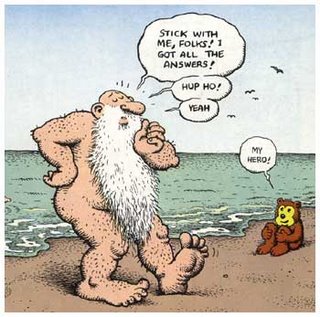 Its been an exciting year for nude and naked news stories, so much so that this column will not mention the recent escapades of Britney Spears or Katie Rees; Miss Nevada.
Its been an exciting year for nude and naked news stories, so much so that this column will not mention the recent escapades of Britney Spears or Katie Rees; Miss Nevada.
Well frankly we already did stories on them.
And of course any mention of such celebrity gossip is well frankly just a cheap attempt to gain hits.
And we would never do that.....;)
After all we all know that photographing celebraties is voyerism. Even when it is art.
Portrait of star photographer Leibovitz lacks a bit of focus
The question is: Is it art? Not surprisingly, for the most part the answer is “yes.”
There is, though, a designated scold: Vicki Goldberg, photo critic for the New York Times.
She does not think Leibovitz’s high-concept photos — Bette Midler in a bed of roses when she starred in “The Rose,” the Blues Brothers with their faces painted blue — are all that insightful. They’re not narratives, she says; they’re jokes.
(Of course, this does not discredit them as magazine covers. They have great impact, the kind that would obviously inspire impulse buys on the newsstand.)
More broadly, Goldberg has little use for the celebrity culture that Leibovitz documents, lionizes and propagates with her photography.
Photography expanded moderninst Nude Art and one of its greatest artists, again a woman, has passed on. Nudity must be good for you she lived to be 101.Greatest photographer of the nude'
SAN FRANCISCO - Renowned photographer Ruth Bernhard, whose black-and-white images of compelling shapes from female nudes to seashells were regarded as still-life art, has died. She was 101. Bernhard, who was born in Germany, died Monday in her San Francisco apartment, the city Medical Examiner's Office said. With the advent of capitalism in China the wealthy can now afford the ultimate bourgeois art form;
With the advent of capitalism in China the wealthy can now afford the ultimate bourgeois art form;Boudoir Photography.
The woman, Chen, said she could not afford to have pictures taken of herself when she was younger. But as she could afford it now, she wanted the pictures taken so that her daughter could appreciate them when she was older.
The studio said Chen was the sixth customer this year with this request.
If you are a politician at a nude beach make sure your companion is your wife or partner.
"Aroused media" get it...aroused... naked, nude....nudge nudge, wink wink...yeah we get it already.
 Gunter Verheugen, the German Vice-president of the EU has aroused the media's interest in him in the past with his fiery tirades against fellow EU bureaucrats whom he accused of having too much power, but this time the media's interest is not in what he said, but in what he bared.
Gunter Verheugen, the German Vice-president of the EU has aroused the media's interest in him in the past with his fiery tirades against fellow EU bureaucrats whom he accused of having too much power, but this time the media's interest is not in what he said, but in what he bared. A German magazine has issued a statement that it has pictures of Verheugen on vacation in August with his chief-of-staff, Petra Erler, sunbathing and playing in the water at a nudist beach in Lithuania. His wife of 19 years was no where to be seen.
These photographs and the allegations made by some of his peers, such as German conservative MEP Markus Ferber who accused Verheugen in April of "nepotism" when he promoted Erler to his chief-of-staff have raised some questions as to how innocent their relationship is.
"In appointing Frau Erler it was apparently not only the professional qualifications which played a role," Ferber insisted.
Herbert Reul, a conservative German European parliamentarian indignantly stated: "I find it unacceptable that an EU commissioner is running around a beach nude with a high-ranking colleague." But his objection seems not against the nudity, but of him doing so with his aide.
Of course not everyone is excited about seeing men in the buff even if they are buff.
Brits decide 100 naked iron men have to leave Liverpool beach
India is less uptight about male nudity in public. It's ok for wrinkled old men to go naked in India.
Naked hermits join procession ahead of Ardh Kumbh
This is not a crude attempt to raise the dead, rather to raise money for the dead.
All I want at my funeral is a couple of strippers
In terms of sexual culture, China has come a long way since the days of the Cultural Revolution. Then, men and woman were often segregated and any overt display of sexuality, whether in dress or public affection, including kissing, invited condemnation if not worse. Today, much of China remains conservative, especially in the countryside.